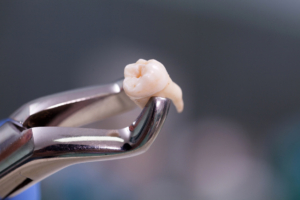
Wisdom tooth extractions have a bad reputation for being one of the scariest dental procedures that a person can be subjected to. And while it is quite scary to hear that you may need to be operated on to remove your wisdom tooth, we’re here to help you understand that there is very little to fear when it comes to wisdom teeth extractions.
Now, we know that one of the best ways to dispel your worries about this procedure is to learn more about it. If this is something that you want to do, read on as we break down everything you need to know about wisdom teeth extraction!
The Reasons for Extraction
So, do all wisdom teeth need to be extracted? Well, the short answer to this is no, not all wisdom teeth need to be extracted. In fact, for the most part, they can just be left in without causing any problems.
With that being said, we now need to talk about when extractions are necessary. If your wisdom tooth is impacted, meaning the tooth hasn’t completely emerged from your gums, it can cause a slew of different issues ranging from gum disease to infection.
This can be rather painful and can lead to more dental issues if left unattended for long periods. If you feel any pain or discomfort around the area where your wisdom tooth is located, then it’s in your best interest to seek out help immediately. Luckily, we offer emergency wisdom tooth removal that can help prevent any issues from occurring down the line. You’ll want to consider this option because impacted wisdom teeth can become a breeding ground for plaque and bacteria. In some cases, impacted wisdom teeth can even collide with the roots of your other molars!
The Surgery
Wisdom teeth are extracted via a simple dental surgery. The dentist will open up the gum tissue over the impacted tooth and take out the bone. In some cases, the dentist may even cut the tooth into smaller pieces to make it easier to remove.
While this may sound rather painful, do note that you’ll be administered a local anesthetic to numb the entire area. In some instances, general anesthesia will be used to put you to sleep. General anesthesia is usually used when several wisdom teeth need to be removed all at once.
The Post Surgery Recovery
While the surgery itself won’t really cause you pain or discomfort, the road to recovery can be rather painful. For the first three to four days, you will likely experience some pain and bleeding. What you have to remember during the recovery stage is to avoid dry sockets from occurring. Dry sockets occur when bone and nerve in the affected area are exposed.
Being exposed to air, food particles, and liquids can cause even more pain and discomfort in the affected area. To prevent dry sockets from happening, it would be best to stick to a liquid diet for the first couple of days. Rinsing your mouth with salt water will also prevent infections and other complications!
Conclusion
As we’ve already explained, there’s really nothing to worry about with wisdom tooth extractions. Just be sure to take the necessary precautions after surgery, and you should face little to no complications. We hope this information proves to be helpful in preparing you for your wisdom tooth extraction. If you have any more questions about the procedure, it would be best to direct them to your dentist!
If you are looking for affordable dentists in Edmonton, Home of Smiles has got you covered. Our experienced and compassionate team can provide you with the dental solutions that you need. Get in touch with us today to learn more about our services!

